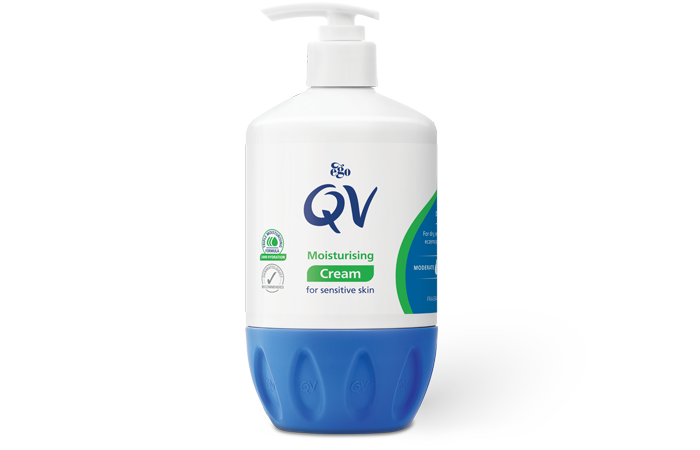In OTC
Follow this topic
Bookmark
Record learning outcomes
In the UK, one in five children and one in 10 adults have eczema, says the National Eczema Society (NES), and its prevalence is increasing.
There is a tendency to downplay skin conditions, but atopic dermatitis (eczema) has a quality of life, psychological and economic burden similar to other chronic health conditions, including asthma and diabetes, says the British Association of Dermatologists (BAD).
“It is essential that pharmacists are well trained in recognising and treating eczema. A well trained pharmacist can revolutionise a patient’s eczema care by recognising and diagnosing it early, providing early interventions with OTC treatments before eczema becomes chronic, and educating patients on avoidance of triggers and proper skin care practices,” says Dr Adil Sheraz, consultant dermatologist and British Skin Foundation spokesperson.
“There are a wide range of products available in pharmacies that patients can use to treat eczema without needing to see their GP, so pharmacies are ideally placed for advice and recommendations,” says Kenny Chan, Numark’s lead information pharmacist.
Focus on eczema
Eczema is an inflammatory dry skin condition which involves genetic, immunological and environmental factors and causes a dysfunctional skin barrier. There are several types of eczema, and atopic eczema is the most common.
“It’s important for pharmacists to be well trained in recognising and treating eczema as they will often be the
first port of call,” says dermatologist and BAD spokesperson Dr Sweta Rai. “Remember that other skin conditions can resemble eczema, so it’s important to know what else the symptoms could indicate.”
It is important that eczema is correctly diagnosed so that it can be managed and treated effectively. In white skin, atopic eczema usually affects the joint creases, such as backs of knees and inside of elbows, while in black skin it’s usually the front of the knees and elbows. It can occur all over the body and face, causing dry, red and itchy or scaly and cracked skin.
“Patients with eczema should be referred when a large portion of their body is affected, or it is severe; they present with unusual or atypical symptoms; if eczema appears infected or if they have fever or flu like symptoms; if their eczema is having a significant effect on quality of life or if it does not improve, or worsens, with OTC treatments,” says Dr Samuel Ashcroft, dermatology registrar and British Skin Foundation spokesperson.
QV Skincare
QV Skincare is a range of soap-free, dermatologically tested emollient cleansers and moisturisers formulated for dry skin conditions such as eczema, dermatitis and psoriasis. Australian made and owned, QV is available on prescription and OTC in the UK. Free from colour and fragrance, the QV range is designed to help increase skin hydration whilst protecting and soothing. It contains a high concentration of moisturising ingredients such as glycerol, which helps the skin retain moisture.
We get most of our queries in this category about eczema and dry skin. Emollients are the first line treatment, so most advice tends to be about these. We ask customers how they are using emollients, and whether they are applying enough – very often, we find they are not. We do get asked about steroid creams, and we advise that they are safe if used correctly. Popular products are Dermomix, Epaderm and Cetraben. I usually recommend a generic hydrocortisone cream. Demand for eczema treatments tends to be higher in winter, though in summer it can be linked with allergies.
Common triggers
Alice Lambert, head of services at the National Eczema Society, says: “Common irritant trigger factors include stress, soaps, detergents, perfumes, cleaning products, synthetic and wool clothing, and changes in temperature. These triggers affect most people with eczema. There are also allergic trigger factors. These include allergies to house dust mites, tree and grass pollen, animal dander, metals, cement and latex.”
Eczema and mental health
Skin conditions can have a major impact on mental health, which in turn can worsen symptoms. According to a survey by Change AD, 80 per cent of patients said their skin condition had a direct impact on their mood and 57 per cent said they’d felt depressed because of their skin condition. Some 60 per cent of men and 55 per cent of women with eczema said their self-esteem and confidence was frequently affected by it.
“The itch of eczema, which is always present for some people, can make it difficult to focus on tasks or activities, cause people to feel self-conscious and lead to problems sleeping. These can all affect mental health,” says Lambert.
In NES’s patient survey Eczema Unmasked, respondents said that stress was the single biggest trigger of their eczema flares.
You can signpost customers to psychological therapies through NHS Talking Therapies. The BAD’s emotional support page is helpful too.
Spotting and treating skin infection
“Common signs of a bacterial infection include itchy skin and being red or darker than usual, with a tangerine glisten to it,” says Alice Lambert from the National Eczema Society. Eczema herpeticum is a serious viral infection that needs immediate antiviral treatment. Symptoms include skin feeling sore and tender, small blisters on the face, hands and fingers, and a fever.
“You should refer customers with a suspected infection to their GP for swabs to find out the cause and whether antibiotics are needed. If it’s a viral infection – eczema herpeticum – this is a medical emergency and needs fast treatment. Look for blisters, and the skin will usually feel painful,” says Dr Sweta Rai, spokesperson for the British Association of Dermatologists.
Skin conditions are one of the most common categories in pharmacy and have become more important over time. Fungal infection queries are common, especially over the summer months. Typically, patients will come in with itchy and inflamed skin and will ask how to treat it. Skin conditions in general require physical examination and a thorough patient history. Products that tend to sell well here are topical anti-fungal creams such as Daktarin. In addition, hydrocortisone 1% cream is often given in tandem to aid with inflammation and itchiness.
Advice and treatment for eczema
“Emollient are a cornerstone of eczema management. They are moisturising agents designed to restore the protective barrier of the skin, which is damaged in eczema. Daily application helps maintain the skin barrier and reduces risk of flare ups,” says Dr Ashcroft.
Where possible, recommend an emollient with a pump dispenser. If it comes in a tub, advise customers to use a clean spoon/spatula, not fingers to remove the product from the tub.
“Offer customers samples to try out different emollients to find the most suitable one, then they’re more likely to use it,” says Dr Rai. “Urea is a good ingredient to look for as it locks in moisture.”
Chan advises: “Lotions are good for hair or damaged areas of skin. Creams are good for daytime use as they are absorbed quickly. Ointments are good for very dry, thickened skin and night time use as they are greasy.”
Topical steroids are used to treat inflammation and are safe if used correctly. They are normally prescribed for two weeks to control a flare.
They should be measured out by squeezing a strip of cream along the length of the end joint of the forefinger (a finger tip unit). This quantity is enough to treat an area of eczema the size of two flat hands with fingers together.
“Recent research shows that it’s best for a topical steroid to be applied first, and then the emollient. Leave a 30 minute gap,” says Lambert.
“Encourage patients to use sun protection as corticosteroids can make the skin more sensitive to sunlight. Inform patients about possible side effects, but reassure them that these are less likely with short-term use and proper application,” says Dr Sheraz.
Skin care market trends
Mass market facial skin care is set to out-perform the premium sector this year, says Mintel (Women’s Facial Skincare 2023). The mass market sector is estimated to be worth £959.8 million and prestige £639.9m. Mass market sales are up by 8.5 per cent year on year, compared with 4.1 per cent for prestige.
There is a trend for ‘double cleansing’, with this category benefitting from increased sales. Mintel reports 16.1 per cent growth for cleansers, toners and make-up removers compared with 2022.
In the medicated skin care sector, there is a trend for subscriptions to ‘prescription grade’ products and dermatologist recommended solutions. Medicated skin care sales are up by 15.8 per cent this year, says Mintel.
Face masks and wipes have seen a drop in sales as customers become more eco-conscious. Sales fell by 8 per cent this year.
Mists and spray products are increasingly popular, with sales up by 58.3 per cent.
Peptides are a popular ingredient in skin barrier repair products and anti-ageing products. They are seen in cleansers, serums and moisturisers. Other popular ingredients include hyaluronic acid and retinol.
Sustainability is a key trend across the skin care category. Refillable containers are becoming more widely available and consumers are looking for products that use recycled packaging.





